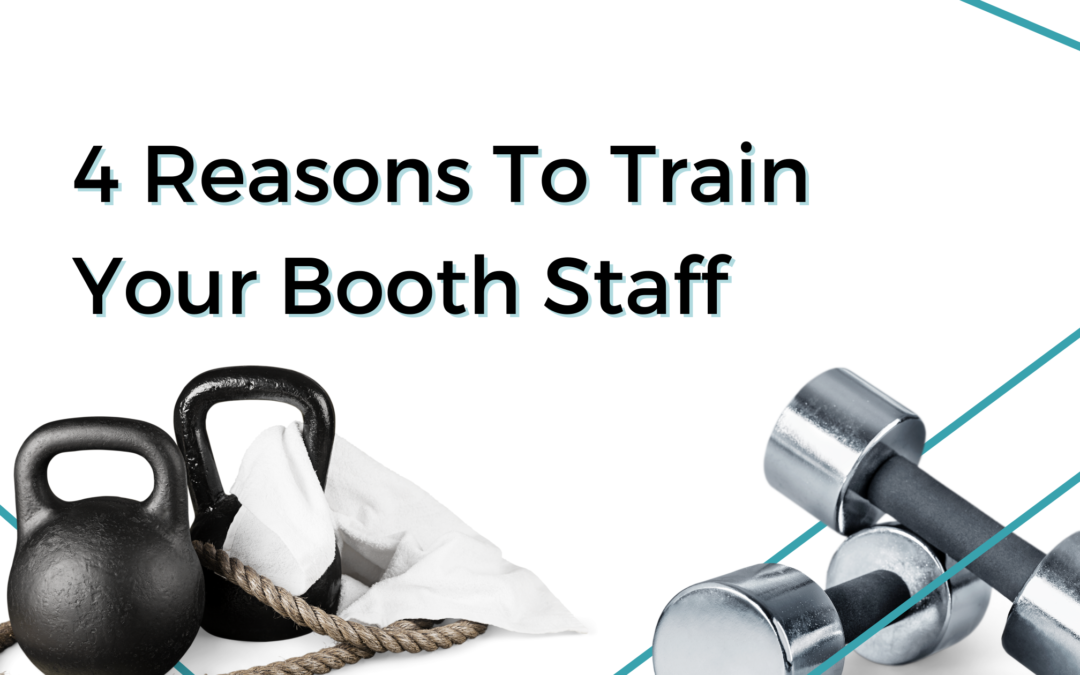Among the things that contribute to a successful trade show exhibit, graphics play a crucial role in attracting attention, conveying messages effectively, and leaving a lasting impression. Here are 5 tips for utilizing graphics in your trade show booth to maximize engagement and hit your goals.

4 Reasons Why To Train Your Booth Staff
Your booth staff can make or break your trade show. Bad staff can completely ruin the best booth design and marketing campaign. How do you ensure you have the best people? The best way is to train your booth staff.
Before the training, there is one stipulation for who makes the best booth staff. You need to make sure that whoever is staffing your booth actually wants to be there. No training in the world will overcome a surly person. I always take volunteers first and then start making assignments.
I make sure people know the benefits of going to the shows. Learn how to keep Booth Staff Happy. They get a share of the leads, they get to travel to the show (if it is out of town), they also get to make the face to face connections of their target market. If people do not attend the show – they do not get the leads. That is one hard and fast rule I work by.
On to training the staff.
- Create a Positive First Impression
Your booth staff is the face of your brand. They are responsible for creating the all-important first impression on attendees. Training gives your staff the necessary skills to engage and attract visitors, making a lasting impact. From effective communication and body language to product knowledge, training ensures that your staff can showcase your brand in the best possible light.
- Increase Lead Generation
Trained booth staff are more likely to generate quality leads. Training enables your people to identify and qualify potential leads effectively, capturing valuable contact information and nurturing prospects throughout the event. Training also helps them understand who they should be talking to – and how to disengage from those people who are not quality leads.
- Enhance Product Knowledge
Deep product knowledge is a powerful asset for booth staff – both inside and outside the booth. Training sessions equip them with comprehensive knowledge about your offerings, enabling them to answer questions confidently and provide accurate information. See all the things your staff should know before the show.
- Handle Challenges with Confidence
Events are hectic, and challenges will arise. Whether it’s dealing with difficult attendees or managing the unexpected, trained booth staff will face these things with confidence. This provides a smooth and professional experience for both your staff and attendees, ultimately contributing to a good event.
A well-trained booth staff is a huge asset that can elevate your brand and drive meaningful results – but remember it is not a silver bullet for people who do not want to be there at all.








